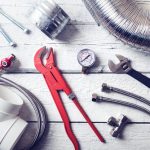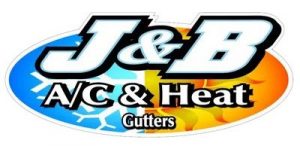 As a homeowner in Ruston, it’s only natural to want to tackle home repairs and projects on your own. However, when it comes to HVAC (Heating, Ventilation, and Air Conditioning) systems, attempting DIY repairs without the necessary skills and knowledge can lead to costly mistakes. In this blog, we will highlight common errors made by homeowners when it comes to DIY HVAC repairs and provide practical tips for what you can safely handle and when it’s crucial to seek professional assistance.
As a homeowner in Ruston, it’s only natural to want to tackle home repairs and projects on your own. However, when it comes to HVAC (Heating, Ventilation, and Air Conditioning) systems, attempting DIY repairs without the necessary skills and knowledge can lead to costly mistakes. In this blog, we will highlight common errors made by homeowners when it comes to DIY HVAC repairs and provide practical tips for what you can safely handle and when it’s crucial to seek professional assistance.
1. Do: Regular Maintenance
One of the most effective ways to prevent HVAC issues and maintain optimal performance is by conducting regular maintenance. You can certainly handle tasks such as replacing air filters regularly, cleaning vents, and inspecting outdoor units for debris and obstructions. These simple maintenance tasks help ensure proper airflow, improve energy efficiency, and extend the lifespan of your HVAC system.
2. Don’t: Tackle Complex Repairs
While regular maintenance is within your capabilities, it’s crucial to know your limits when it comes to complex HVAC repairs. Attempting to fix major issues such as refrigerant leaks, compressor failures, or electrical problems can be dangerous and potentially cause further damage to your system. Unless you have the necessary training and experience, it is best to leave these complex repairs to licensed HVAC professionals.
3. Do: Keep the Outdoor Unit Clear
Your outdoor HVAC unit requires proper airflow to function efficiently. Take the initiative to keep the area around the unit clear of debris, vegetation, and other obstructions. Regularly trim any vegetation near the unit to allow at least two feet of clearance on all sides. A clear outdoor unit will enhance airflow and prevent potential damage from debris getting sucked into the system.
4. Don’t: Interfere with Air Ducts
Air ducts distribute conditioned air throughout your home, and interfering with them can cause significant problems if not done correctly. Avoid attempts to modify or reroute air ducts as improper alterations can disrupt the airflow, leading to uneven cooling or heating. If you suspect a problem with your air ducts, it is best to consult with a professional HVAC technician who can evaluate the situation and make the necessary adjustments.
5. Do: Clean and Check Thermostat
Your thermostat is a critical component of your HVAC system. Regularly cleaning it and checking its operation is a safe DIY task. Dust and debris can build up on the thermostat, affecting its accuracy and functionality. Use a soft brush or cloth to gently clean the surface, and ensure the thermostat is level and properly calibrated. If you encounter any issues, such as inconsistent temperature readings or a malfunctioning thermostat, contacting a professional is recommended.
6. Don’t: Overlook Safety Precautions
Safety should always be a top priority, especially when working with HVAC systems. If you’re attempting any DIY HVAC repairs that involve electrical components or refrigerant handling, it’s crucial to take the necessary precautions. Turn off the power to the HVAC system before performing any work, and exercise caution when handling electrical components. Additionally, refrain from tampering with refrigerant lines or attempting to recharge refrigerant on your own, as these tasks require specialized training and equipment.
7. Do: Change Air Filters
Changing the air filters in your HVAC system is a simple but important task that can be safely handled by homeowners. A clogged air filter restricts airflow and reduces the efficiency of your system. Regularly inspect your filters, typically every one to three months, and replace them as needed or following the manufacturer’s recommendations. Clean air filters not only improve indoor air quality but also contribute to more efficient operation of your HVAC system.
8. Don’t: Ignore Strange Noises or Odors
When it comes to your HVAC system, it’s crucial to pay attention to any unusual noises or odors. If you notice persistent rattling, banging, squealing, or other strange sounds, it’s best to contact an HVAC professional. These noises often indicate underlying issues within the system, and attempting to diagnose and fix them on your own without the proper knowledge can worsen the problem or void manufacturer warranties. Similarly, unusual odors, such as burning smells or strong musty odors, can be signs of significant issues that require professional attention.
Summary
Knowing when to tackle DIY HVAC repairs and when to seek professional assistance can save you money, time, and potential headaches. By following these do’s and don’ts, Ruston homeowners can confidently handle basic maintenance tasks while recognizing the limits of their skills. Remember, when in doubt, it’s always best to consult with a qualified HVAC technician who can provide expert guidance and ensure the safe and efficient operation of your HVAC system.
